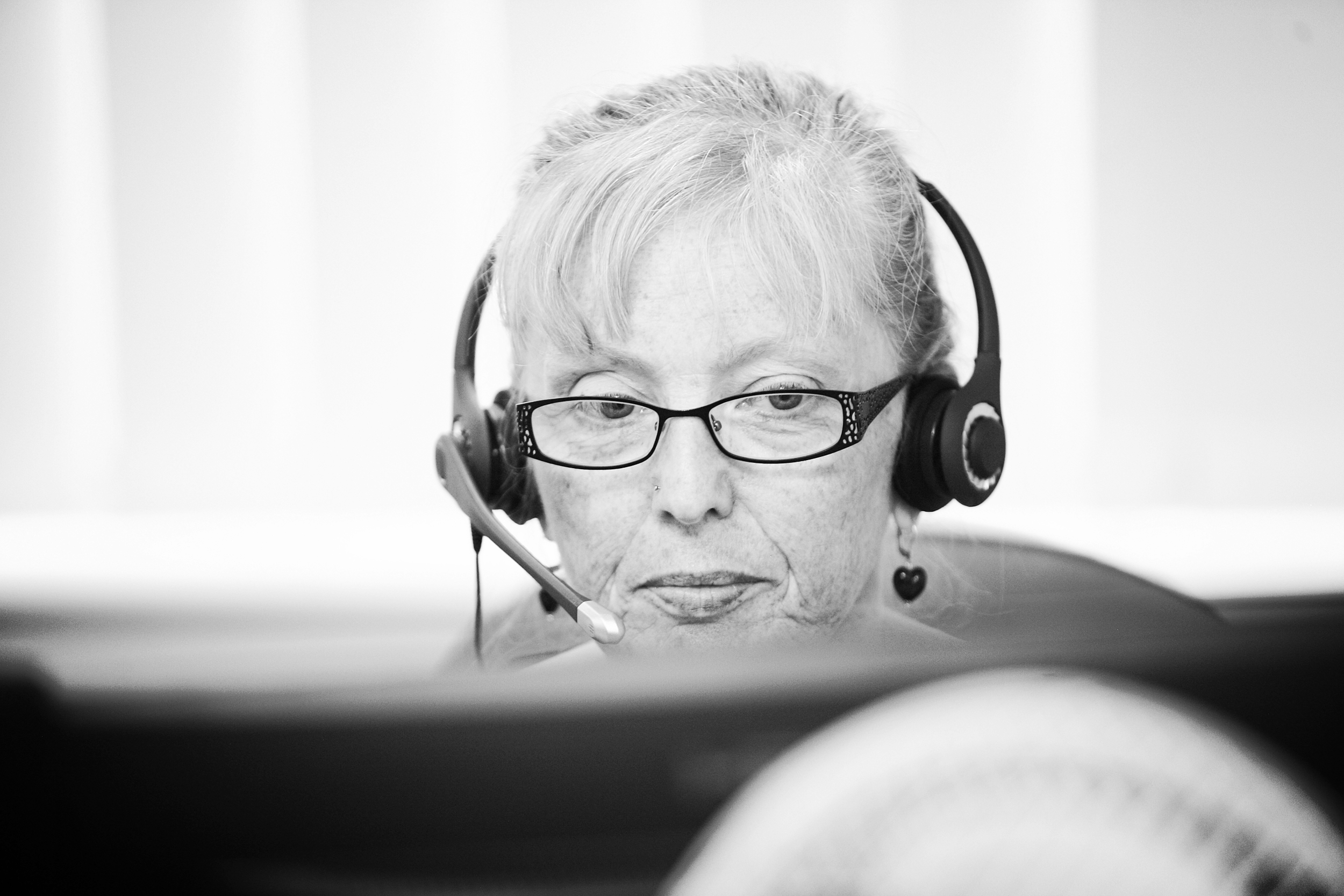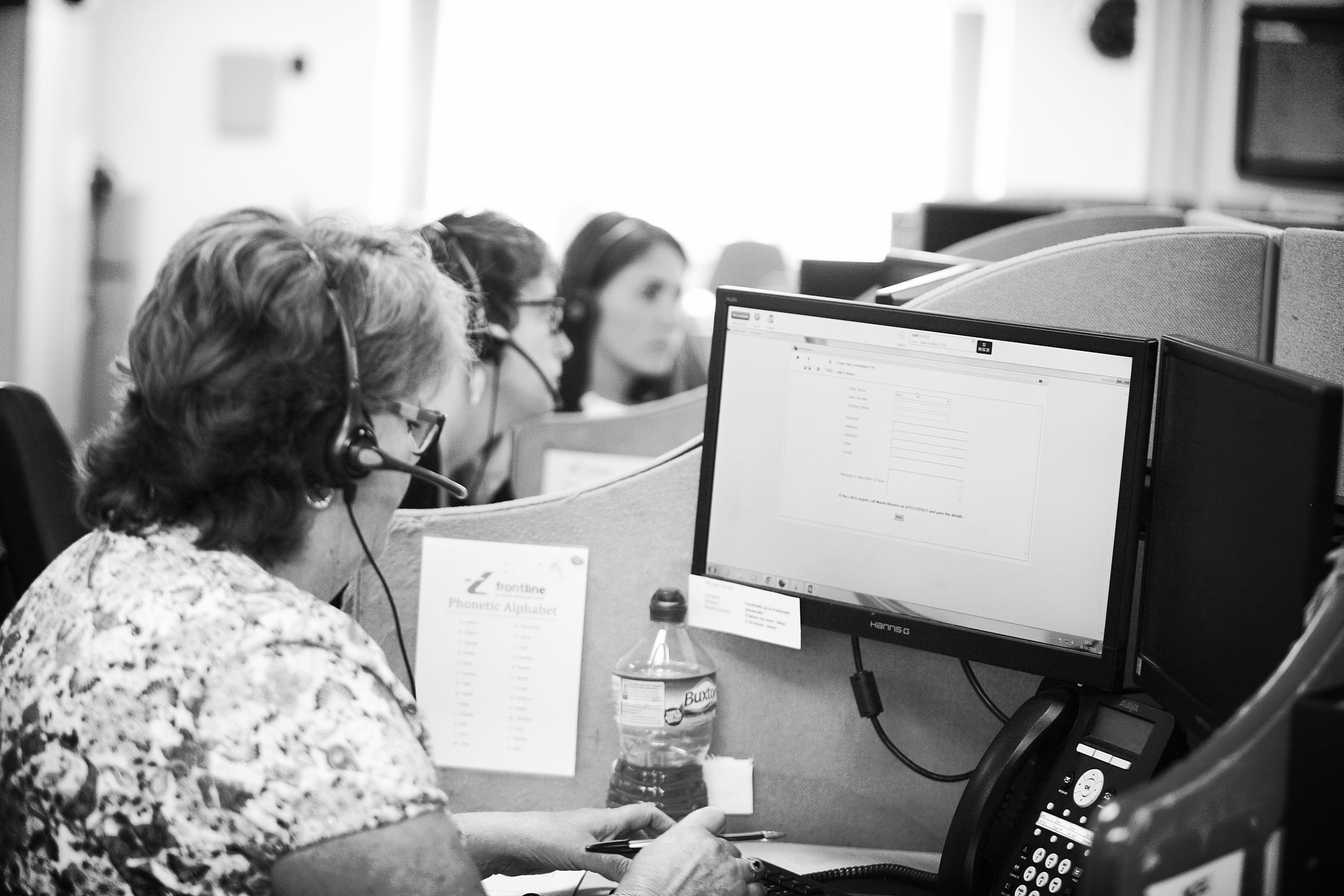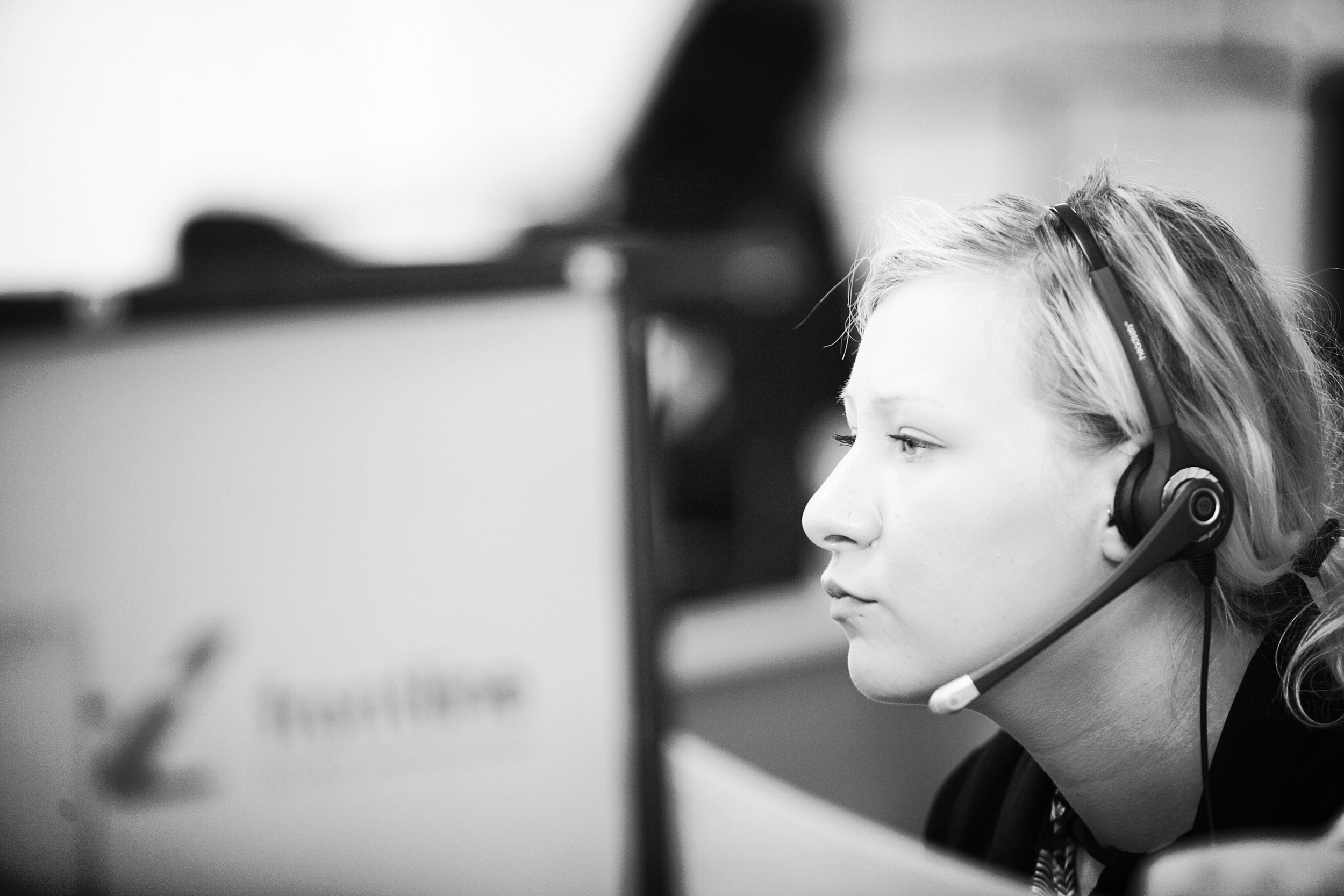Training: Creating that perfect 'first touch'
The trainer's percpective
"Primarily, the first thing I do when introducing someone to funerals is I give them background on the funeral business we are supporting and then what Frontline do for them. What is our purpose?
I talk about the various services and options we can offer every time we take a call, whether it is one in the morning or four in the afternoon. I make it extremely clear within our role we are essentially putting on our funeral director hat and becoming part of the team. We are a unit and by no means a separate organisation. We should be treating the person on the phone with the same curiously and empathy as the funeral director themselves would.
Once an understanding of what we do and what general service is provided is completed. I would then go through different scripts we have here. Really the script is your guide and understanding this and which options to select quickly and effectively means giving the caller a more efficient service. There is a lot of terminology that needs to be explained along the way. (I have documents I have created with these to show phases to learn and that will heard all the time) Always scenarios are given on course to check understanding of Removals chapels and enquiries and different ways the caller would express themselves in telling us what they need from us today e.g. a caller may say she wants to spend some time with their loved one but in fact their loved one is resting in hospital with the coroner. Enquiry or Chapel? If you just took into account “would like to spend time with loved one” this would go under chapel. This is why it is so important to explain every step of the way and give our agents the tools.. in this situation I would have taught to always ask where the person that has passed away is resting meaning straight away no confusion.
I always make sure live call listening takes place as well as recordings I have selected previously for them to listen too before taking any call. This way there is a actual interaction of all the information taught but in a literal live manner. I think shadowing is one of the most important parts of the training as it is real. We cannot teach everything as everyday calls are so diverse and impromptu it would be impossible, however this doesn’t mean we cannot give all the tools and teaching to enable the initiative to deal with these situations calmly effectively and personally to the caller.
I always have in my head this part of the promise with every call I take:
We’re available 24 hours a day, 7 days a week, so you’ll always have someone to talk to. Together we can create a completely unique and personalised service – the way you want it to be.
Frontline make this happen, and we do it well."
Emma, Team leader








